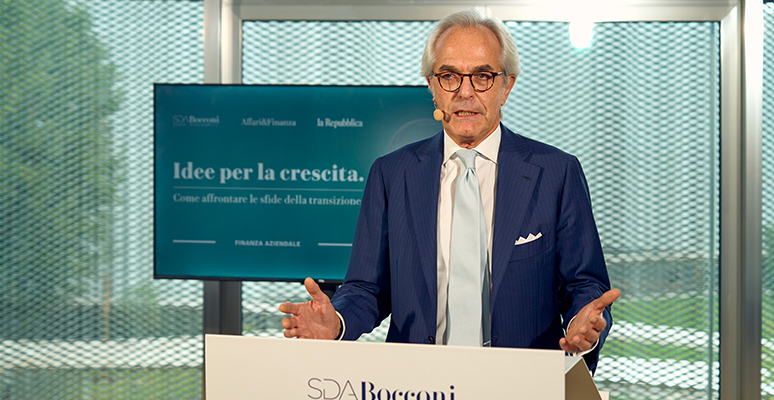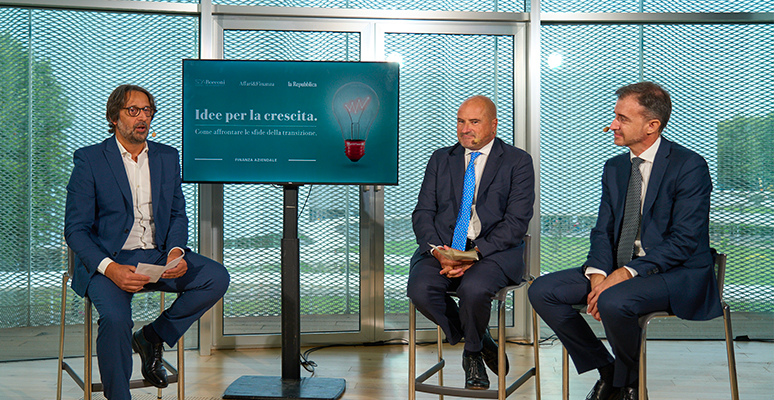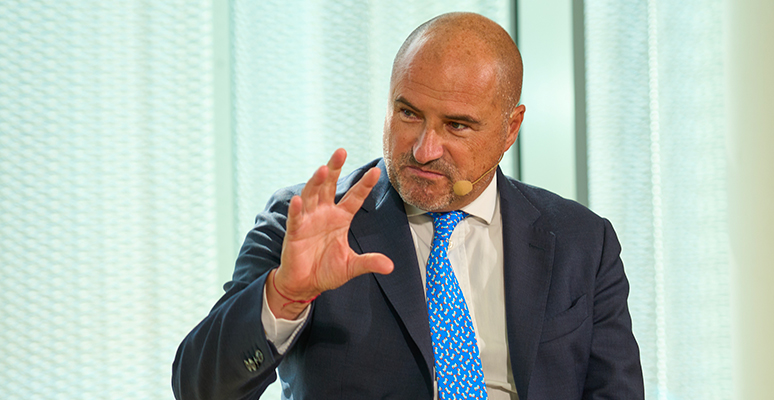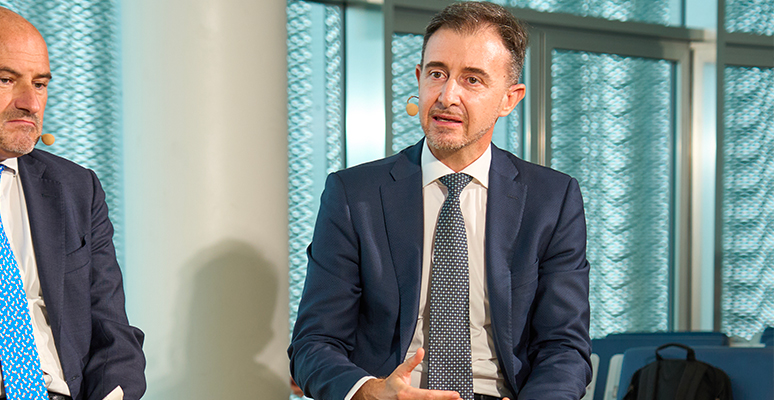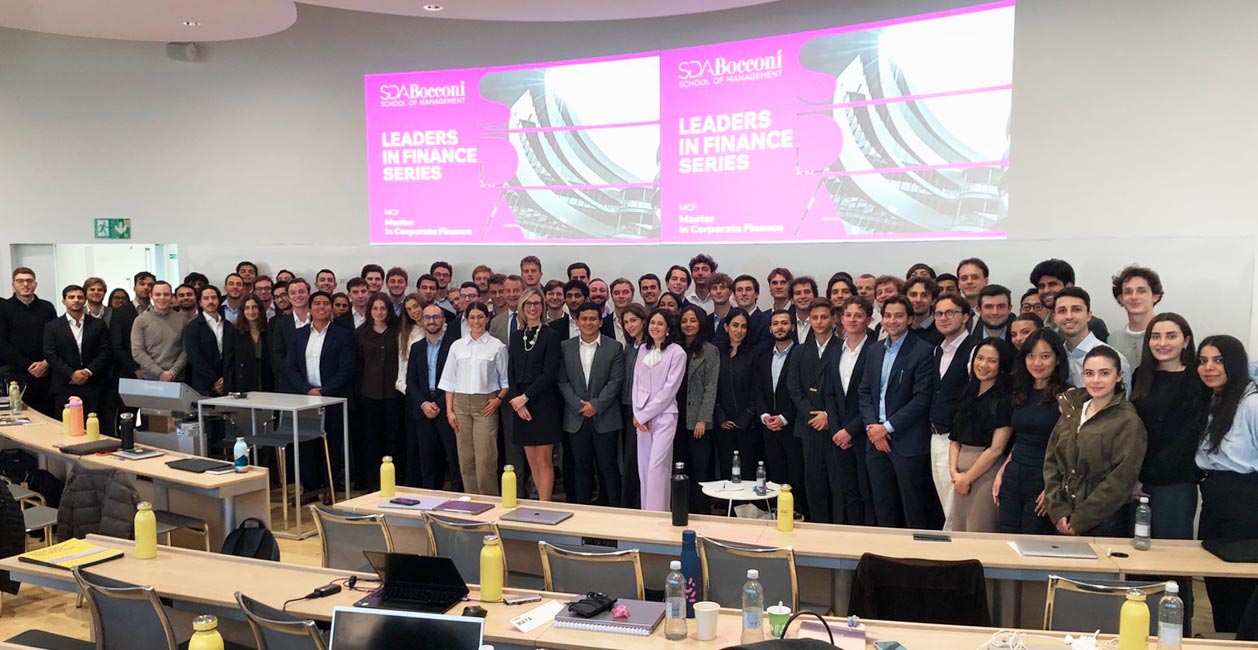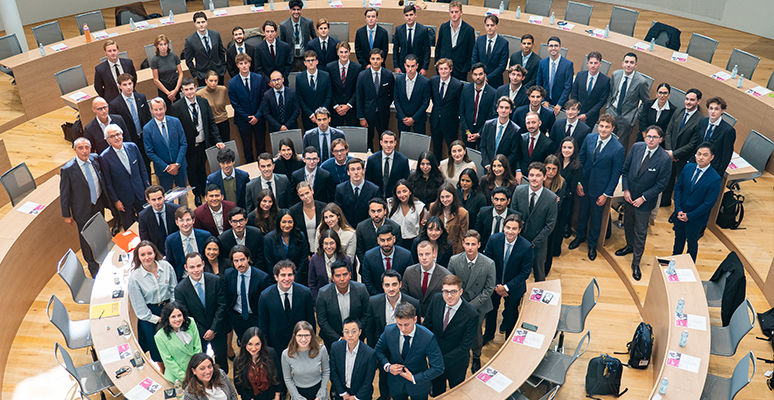In the age of financial gigantism, the true challenge for companies is to find liquidity, said Maurizio Dallocchio, Professor of Corporate Finance at SDA and Bocconi University, during a meeting of the “Idee per la Crescita” (Ideas for Growth) series, organized by Repubblica Affari&Finanza and SDA Bocconi School of Management.
The landscape is dominated by a handful of American tech giants. Nvidia, for instance, by the end of August was worth on the stock market almost twice as much as all listed companies in Germany. The world’s ten largest companies each have market capitalizations above one trillion dollars, supported by revenue multiples that would once have been deemed unrealistic. This concentration of investor attention on a few big tech players has sidelined traditional firms, to the point that the number of listed companies in Europe and North America has almost halved since 2000.
At the same time, European banks show a clear competitive disadvantage compared to their American and Chinese counterparts: none ranks among the world’s top ten by capitalization. The reason lies in their different business models: in the United States, banks earn the bulk of their profits from activities other than lending, whereas in Europe more than half of assets are tied up in loans to businesses and households. This structure makes European banks less attractive to the markets and raises the risk that, in the medium-to-long term, they may reduce support for the productive economy in order to appear more appealing to investors.
How, then, will companies secure the capital needed to grow or even survive? The solutions lie in greater involvement of pension funds, social security institutions, and insurance companies, which currently invest very little in Italian firms while earning average returns below inflation. If they do not change course voluntarily, legislative measures might compel them. At the same time, companies will have to turn more to the markets, issuing bonds or hybrid instruments and, where possible, relisting. Only in this way can they compete in a context dominated by a few financial giants.
During the debate moderated by Walter Galbiati, Deputy Editor of Repubblica and head of Affari&Finanza, Marco Mariano, Managing Director and Head of Global Corporate Banking Mid Cap at J.P. Morgan, reminded the audience that “Italian companies must continue to grow and compete in the international market, which is why financial assistance remains vital.” In a complex context shaped by multiple global events, Mariano stressed that capital markets have remained “very open and receptive to new investment initiatives,” pointing out that investors have kept their risk appetite alive.
Massimo Ferrini Bronzoni, Partner at KPMG and Head of Debt Advisory, noted that the current geopolitical moment is “very interesting,” but at the same time marked by considerable uncertainty. In fact, there is a clear shift of the center of gravity of global capitalism toward the United States and China, where tech and digital giants continue to expand thanks to their ability to sustain the massive investments typical of the sector. A context that penalizes the Old Continent and, in particular, Italy.
SDA Bocconi School of Management
Photogallery




